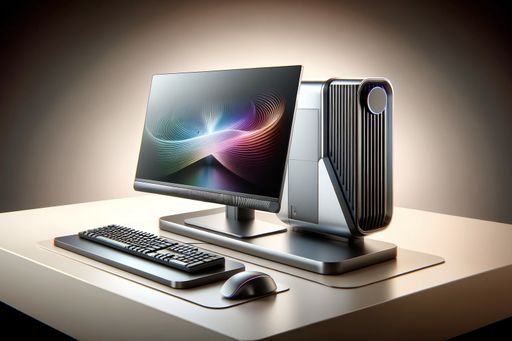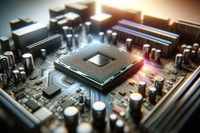Quantum Computing Startup Plans to Beat IBM to Error Correction
QuEra, a quantum computing startup, has announced plans to bring error correction to quantum computing in two years, beating IBM's timeline. The company is building on the success of the Harvard University lab's demonstration of error-tracking in similar hardware. By using neutral atom-based qubits, QuEra aims to create hardware with low error rates that will enable useful computations. Currently, quantum computing is limited by error rates, and error-corrected qubits are necessary for complex calculations. QuEra's announcement should be viewed cautiously, but it offers promising advancements in the field.

QuEra Aims to Bring Error Correction to Quantum Computing
Quantum computing startup QuEra has recently announced its plans to bring error correction to the field in just two years, beating IBM's timeline for the same technology. QuEra is leveraging the success of the Harvard University lab's work in error-tracking with similar hardware to develop its solution. While the announcement should be met with caution, considering previous promises from companies in the field, there are reasons to be optimistic about QuEra's progress.
Currently, quantum computing is limited by high error rates in qubits, making complex calculations difficult. QuEra plans to address this challenge by using error-corrected qubits, which can identify and correct errors using additional qubits. This method requires hardware with low error rates, which means the development of qubits with thousands or tens of thousands of qubits. QuEra's choice of neutral atom-based qubits offers advantages over other designs, such as transmons, including compactness, low device-to-device variation, and the ability to perform operations and readouts using lasers.
The Significance of Error Correction in Quantum Computing
Error correction plays a crucial role in advancing quantum computing. Current qubits are prone to errors during measurements, operations, and even when idle. While it is possible to improve error rates, many experts believe that error-corrected qubits are essential for performing complex calculations. Error-corrected qubits distribute quantum information across multiple hardware qubits and connect them with additional qubits that can identify and correct errors. However, this technique requires hardware with low error rates to ensure accurate calculations.
IBM and other companies have been using transmons, which are electronic devices, as their hardware qubits. While transmons are relatively easy to control, they require bulky wiring and integration of multiple chips for practical quantum processors. QuEra and some other companies have chosen neutral atom-based qubits, which offer advantages such as compactness, absence of device-to-device variation, and the ability to perform operations and readouts using lasers. The flexibility of moving atoms around allows for entanglement between any two atoms, a feature that permanent wiring lacks.
Promising Advancements in Quantum Computing
QuEra's announcement regarding its plans to beat IBM to error correction in quantum computing offers promising advancements in the field. By capitalizing on the success of the Harvard University lab's error-tracking demonstration, QuEra is working towards error-corrected qubits that will enable useful computations.
While caution is necessary, as rapid scaling promises have often fallen short, QuEra's choice of neutral atom-based qubits and its use of similar hardware design offer reasons to take the announcement seriously. If QuEra can deliver on its roadmap, it could significantly advance quantum computing and bring it closer to fulfilling its promise.



